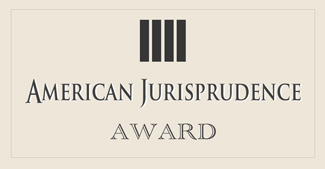
Legal jargon can be difficult to decipher. We made this glossary to help you figure out what everything means and how it applies to you and your case.
Abuse: The act of hurting or injuring someone either through words or physical treatment.
Accessory: When someone helps a crime to be carried out, even if they are not there at the scene of the crime, they are considered an accessory to the crime. An accessory can give directions on how to carry out the crime, help cover up the crime or encourage a suspect to commit a crime.
Acquittal: An acquittal happens when a defendant has been found not guilty of a crime after a trial.
Admissible: Evidence that is considered acceptable, and valid of being presented in a court trial.
Adversary proceeding: Generally speaking, an adversary proceeding is any time someone has filed a legal complaint against someone else and the defendant has a chance to defend him or herself. More specifically, an adversary proceeding refers to a court case that happens when someone files for bankruptcy, but it has a separate electronic docket and case number.
Affidavit: A statement of facts someone voluntarily makes under legal oath which is written down in a document.
Affirmative Defense: When a different set of facts are revealed by the defendant which shed light on why the argument put forth by the plaintiff, even if it might be true, are not sufficient to charge that defendant with a crime, or at the very least, his or her punishment should be lightened.
Aggravated Assault: The act of attacking someone either intentionally or carelessly with a dangerous weapon which results in serious physical injury.
Aid and Abet: To help someone commit a crime, not through physical actions, but verbally such as giving them concrete steps in how to perform the crime or encouraging them to commit the crime in the first place.
Alibi: An excuse someone uses to prove that they were somewhere else when a crime happened.
Answer: A written statement made by a defendant in response to a legal complaint made against them by a plaintiff.
Appeal: After a final court decision has been reached in a trial, the person who lost may request that a higher court reverse the decision made by the lower court.
Arraignment: The initial court proceeding in which a judge states the charges against a defendant in a criminal case and the defendant is asked how he/she will plead in response to the charges.
Arson: The deliberate and malicious burning of a building or any other structure.
Assault with a Deadly Weapon: An intentional or reckless physical attack against an unwilling victim carried out with a dangerous weapon.
Assault with Intent: When an assailant causes physical harm to a victim with the intention of committing a different crime. One example is death that might occur when someone intends to rob a victim’s house.
Attempted Assault: When someone tries to injure or harm someone else, but the actual harm done is minimal or not at all.
Battery: Unwanted, deliberate, offensive and harmful touch by someone else. This can include touching of clothes, transmitting diseases, and spitting in someone’s face.
Bench Warrant: A written order from a judge calling for the arrest of someone charged with a crime or contempt of court.
Beyond a Reasonable Doubt: A standard of proof which confirms a defendant’s guilt based on the evidence provided.
Board of Pardons: A board run by the executive part of the state which has the power to grant pardons to prisoners and other people convicted of a crime.
Brief: A document presented by a lawyer for a party in a lawsuit stating the reason for the lawsuit, the people involved, and which laws should be examined in favor of the presenting party.
Burden of proof: The obligation by one party in a lawsuit, usually the plaintiff, to present facts that prove his or her claim.
Capital offense: A crime serious enough to warrant capital punishment.
Child Enticement: Trying to elicit a minor to sexually or physically harm them. This can include the production of child pornography, human trafficking, and kidnapping.
Child Exploitation: Taking advantage of a child in order to make money, receive free labor, or have sexual relations with the child.
Child Procurement: Obtaining a child for prostitution or selling a child for prostitution. Selling a child for cash, as in an illegal adoption. Trying to meet with a child to perform a sexual act.
Clemency: The act of reducing the punishment for a certain crime without actually clearing that crime from the criminal records.
Commutation: Exchanging one penalty for a different one, generally from a more severe punishment to a lighter one.
Competence Order: A statement regarding whether a person has the mental capacity to take part in legal proceedings.
Concurrent sentence: If someone is convicted of more than one crime, a judge may give separate lengths of time for each crime. With a concurrent sentencing, the judge can authorize that all the sentences be served at the same time, and shorten the whole length of the term served.
Consecutive Sentence: When someone has been convicted of more than one crime, they serve one penalty right after the other penalties have been completed.
Cybercrime: A crime that occurred via the use of the internet, a computer, or a computer network.
Default judgment: A judgment made in favor of the plaintiff when the defendant does not show up.
Defendant: The person accused of a crime.
Deposition: Pre-trial testimony taken under oath.
Domestic Violence: Acts of physical violence carried out against family or household members.
Double Jeopardy: Charging someone for the same crime more than once or having more than one punishment for the same crime.
Driving Under the Influence: Driving a motorized vehicle while having a blood-alcohol level above the legal limit.
Due Process of Law: A legal principle that someone cannot be killed, imprisoned or have their possessions taken away without legal recourse.
Embezzlement: Stealing money from an employer, another company or a government entity.
Entrapment: When a law enforcement agent induces a person to commit a crime they would not have otherwise been willing to do.
Evidence: Proof used in a trial to prove or disprove the facts in an argument.
Exclusionary rule: A rules that states evidence which was collected in an illegal manner may not be used against a person in a court of law.
Exculpatory evidence: Evidence which takes away the guilt of the defendant.
Expungement: The legal obliteration of previous criminal records.
Extrinsic Fraud: A fraudulent activity that keeps someone from being able to fully exercise his or her legal rights.
Failure to Register: What a sex offender is charged with after he or she has failed to register with law enforcement after being sentenced.
Felony: A crime of a more extreme nature or degree than less serious crimes (misdemeanors) and punishable with more severe penalties.
Forgery: Falsification of a document and presenting it as an authentic document.
Fraud: Intentionally lying to another person in order to deceive the victim and cause the victim to take action which will be harmful to them.
Habeas corpus: A document that states an incarcerated person must be brought before a judge, and it should be determined whether there is a sufficient reason to keep him incarcerated or not. Habeas corpus also applies to child custody, and mentally or physically ill prisoners.
Hearsay: A statement made out of the vicinity of the court that is offered as evidence in a court trial.
Indictment: A legal process where a defendant is brought to court and informed of the charges made against him or her, so that the defendant can then prepare a legal defense.
Jurisdiction: The power that legal authority has to exercise over a geographical area or to hear certain types of legal cases.
Lawsuit: A legal action filed with the civil court by a plaintiff asserting a complaint that the defendant did not fulfill his/her legal duty in some respect and that that failure caused the plaintiff harm.
Lewdness: Inappropriate and disturbing displays of sexual acts that are deemed unacceptable by societal standards.
Litigation: The act of bringing a lawsuit against a defendant from the initial complaint to the final decision of the court.
Lien: A legal instrument of financial liability placed with the relevant government department to secure collection of a debt or fulfillment of other legal obligations.
Mayhem: The criminal act of removing, disfiguring, or disabling a victim’s external body parts, usually the leg, arm, hand, foot, or eye. This is done in a malicious manner with full intent or reckless behavior.
Miranda Rights: A legal requirement that before police can arrest or interrogate someone they must be reminded that they have “the right to remain silent, the right to legal counsel, and the right to be told that anything he/she says can be used in court against” them.
Misdemeanor: A less serious offense than a felony crime and typically punishable with less severe sentences.
Mistrial: A trial deemed by a judge to be invalid due to an error that has potentially adversely impacted the essentials necessary for a fair legal process. A new trial may be started with a new jury.
Moot: A controversial issue not considered by the court for a ruling because it has not actually become a matter for the court’s involvement or it has already been concluded.
Motion: A civil or criminal litigant’s formal request to a judge to hand down a decision on an issue pertaining to the case.
Molestation: Includes the touching of private parts, exposure of sexual organs, production of child pornography, rape and other forced sexual acts with a molester, among other crimes.
Money Laundering: The criminal act of procuring funds from illegal activities and making the funds appear as if they came from a legitimate business activity.
Motion to Lift the Automatic Stay: A formal request filed with a civil court by a creditor to permit a type of action against a debtor or a debtor’s relevant property otherwise protected by the automatic stay per U.S. bankruptcy law.
Negligent Homicide: A criminal charge that is caused by carelessness or inattention to important matters that results in the death of an innocent victim.
Nolo Contendere: Latin phrase translated as “I do not wish to contend” and short-formed in the formal plea by a defendant as “no contest” in response to charges. It has the effect of a guilty plea on sentencing but cannot be treated as an admission of guilt for other legal purposes.
Pandering: The act of luring victims into prostitution activities through force, coercion, enticement, or trickery. Garnering clients and collecting money from prostitution activities is also considered pandering.
Parole: A parole board’s release of a state or federal inmate back into the community, under supervision by a parole officer, after partially serving the prison sentence.
Perjury: Promising to tell the whole truth in a court of law, and then lying under oath.
Petition: The official document filed with the court to initiate a legal proceeding. It states the name, address, requests action by the court, and states the petitioner’s cause for the request.
Post-Conviction Relief: After a convicted person loses an appeal, the next step is to apply for post-conviction relief. The petitioner must prove that his or her constitutional rights were somehow violated during the court trial.
Prescription Fraud: The acquisition of prescription medication via fraudulent methods either for personal use or monetary gain.
Pre-Trial Services: Pretrial services are duties performed by a federal court before sending someone to trial. They often include screening services and exploratory investigation which may lead to community supervision that takes place after a person has been charged and arrested with a crime.
Plea: The formal statement by a defendant to the court in a criminal case asserting his or her guilt or innocence of the charges against him/her.
Pleadings: The written statements filed by the parties to a legal action asserting their versions of the facts of the case.
Probation: A sentence ordered by a judge in lieu of jail time. The court releases the person to the community under the supervision of a probation officer from the court’s probation office.
Probation Officer: Officer of the court’s probation office who supervises the convicted person’s compliance with the court’s probation requirements handed down by the judge in lieu of jail time.
Proof of Claim: A creditor’s formal written statement to the court explaining the amount of money a debtor owes to the creditor and the reason the debtor owes the money.
Rape: The entering of the vagina or anus with a body part or object, or the insertion of genitalia into the victim’s mouth, against the will of the victim.
Reaffirmation Agreement: A debtor’s formal agreement to continue paying a debt after a bankruptcy is finalized, though the debt could have been discharged. This is often used to enable the debtor to maintain accounts with some creditors.
Record: The court’s complete formal documented account of a legal case, including all evidence, exhibits, pleadings, etc., filed throughout the court process.
Second-degree murder: A crime in which a person dies as the result of an assault. The death was not planned in advance, but the suspect knew it could happen as a result of the assault.
Sentence: The specific form and amount of punishment ordered by a court to be imposed upon a person convicted of a crime.
Sexual Abuse: Causing a child to engage in sexual behavior by either coercing, taking advantage of, persuading, using authoritative powers or luring the child victim. This includes the creation of child pornography, molestation by relatives or caretakers, statutory rape, and prostitution.
Sodomy: Sexual activity that involves one person’s genitals being inserted into the anus or mouth of another.
Spousal Abuse: Any abusive behavior between people who are married, dating, or living in the same property.
Theft by Deception: Inducing someone through fraudulent means to turn over their property to someone who is not the rightful owner.
Theft: The removal of an object without the agreement of the original owner with the intention of never returning the item.
Unfounded: The outcome of a case where it was determined that no crime was discovered or revealed.



